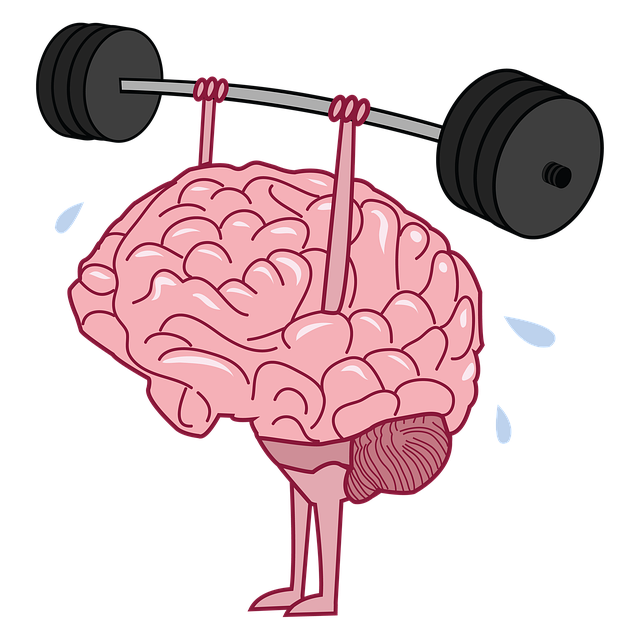Colorado Springs Abuse Survivors Therapy (CSAT) prioritizes understanding mental health data for personalized support. Using evidence-based methods, therapists analyze client information to identify patterns and tailor treatments for trauma resolution, coping mechanisms, and social skills development. This approach enhances outcomes like improved social skills, anxiety relief, and inner strength. Statistical analysis of CSAT data is vital for uncovering trends in demographics, trauma types, and treatment results, guiding targeted interventions and policies. By interpreting mental health data, CSAT offers proactive support, empowering survivors through self-awareness exercises and improved access to care. Ethical considerations, including privacy protection and informed consent, are paramount in this digital age to foster holistic healing and well-being for all clients.
Mental health data analysis plays a pivotal role in understanding and addressing societal challenges, with Colorado Springs Abuse Survivors Therapy (CSTAT) at the forefront. This article delves into the intricacies of analyzing and interpreting mental health data, highlighting the importance of statistics in revealing hidden patterns and trends. We explore how these insights can shape effective therapeutic interventions, focusing on CSTAT’s unique approach. Furthermore, ethical considerations and privacy safeguards are discussed to ensure responsible handling of sensitive data.
- Understanding Mental Health Data: A Foundation for Analysis
- The Role of Statistics in Uncovering Patterns and Trends
- Interpreting Findings: Implications for Colorado Springs Abuse Survivors Therapy
- Ethical Considerations and Ensuring Privacy in Data Analysis
Understanding Mental Health Data: A Foundation for Analysis

Understanding Mental Health Data is a crucial step in providing effective therapy and support for individuals seeking help at Colorado Springs Abuse Survivors Therapy. This process involves meticulously gathering and analyzing various types of information to gain profound insights into a client’s mental state, experiences, and behaviors. By utilizing evidence-based methods, therapists can identify patterns, trends, and key factors contributing to an individual’s well-being or challenges.
Social Skills Training, Anxiety Relief, and Inner Strength Development are all potential outcomes that stem from this initial phase. Through data analysis, therapists can tailor their approach, focusing on specific areas such as trauma resolution, coping mechanisms, or social interaction skills. This foundational understanding enables therapists to create personalized treatment plans, ensuring that each client receives the most relevant and impactful support.
The Role of Statistics in Uncovering Patterns and Trends

In the realm of mental health data analysis, statistics play a pivotal role in uncovering hidden patterns and trends among communities, such as Colorado Springs Abuse Survivors Therapy (CSAT) populations. By employing robust statistical methods, researchers can identify distinct correlations between various factors—including demographics, trauma types, and treatment outcomes—that may not be immediately apparent through qualitative assessments alone. This quantitative approach enables a deeper understanding of mental health issues within specific regions, guiding the development of tailored interventions and policies.
For instance, mental health policy analysis and advocacy greatly benefit from statistical insights. Identifying trends in risk assessment for mental health professionals can inform the design of more effective safety protocols and support systems. Moreover, community outreach program implementation can be optimized by analyzing data to pinpoint high-risk areas and tailor services accordingly. This ensures that resources are allocated efficiently, enhancing the overall well-being of communities like Colorado Springs Abuse Survivors Therapy areas.
Interpreting Findings: Implications for Colorado Springs Abuse Survivors Therapy

Interpretation of mental health data holds immense significance for understanding and supporting survivors of abuse in Colorado Springs Abuse Survivors Therapy (CST). By analyzing trends and patterns within the collected data, therapists can gain valuable insights into the unique challenges faced by this population. For instance, a Mental Health Policy Analysis and Advocacy perspective might reveal systemic issues affecting access to care, which could inform advocacy efforts to improve services. This process allows for tailored interventions and personalized treatment plans.
For example, data may highlight specific trauma-related behaviors or emotional responses prevalent among survivors. Such findings can guide the development of targeted group therapy sessions or individual coping strategies, focusing on Burnout Prevention techniques. Additionally, Self-Awareness Exercises derived from data analysis can empower survivors to recognize and manage their mental health proactively. Through data-driven insights, CST can enhance its approach, ensuring more effective support and improved outcomes for abuse survivors in the community.
Ethical Considerations and Ensuring Privacy in Data Analysis

As mental health data analysis becomes increasingly prevalent, especially with the rise of digital health platforms like Colorado Springs Abuse Survivors Therapy, ethical considerations surrounding privacy and data protection are paramount. Ensuring the confidentiality of sensitive information is a cornerstone of ethical practice, as it fosters trust between clients and healthcare providers. This involves implementing stringent security measures to safeguard data, adhering to relevant Mental Health Policy Analysis and Advocacy frameworks, and obtaining informed consent from individuals whose data is collected and analyzed.
Respecting individual privacy extends beyond technical safeguards; it also necessitates a cultural shift within the mental health community. Professionals must adhere to Mind Over Matter Principles, emphasizing inner strength development and empowering clients to take control of their data. By prioritizing ethical conduct, the mental health sector can not only protect vulnerable populations but also promote holistic healing and well-being.
Mental health data analysis plays a pivotal role in understanding and addressing the well-being of communities, especially those like Colorado Springs Abuse Survivors Therapy. By employing statistical methods to interpret trends and patterns, we can identify areas needing improved support and services. This approach ensures that interventions are evidence-based and tailored to the unique needs of survivors. However, ethical considerations regarding privacy must be paramount throughout the process to protect vulnerable populations. Through responsible data analysis, we can enhance the effectiveness of therapy and ultimately improve outcomes for those seeking mental health support.














